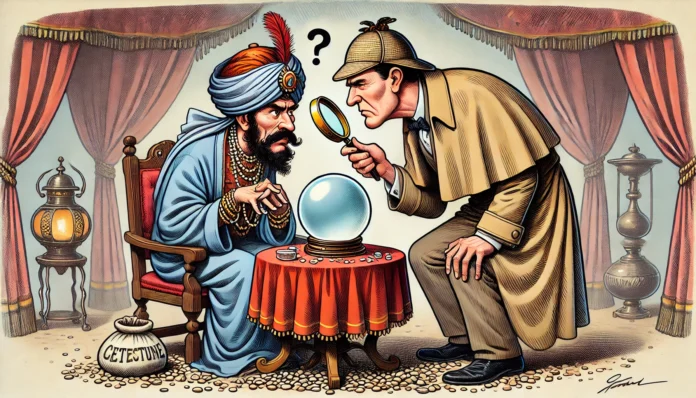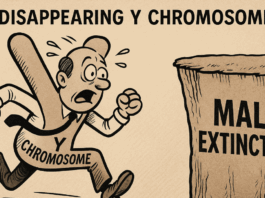Debunking Pseudoscience: How Skeptics Separate Fact from Fiction
In an age where information is more accessible than ever, the line between fact and fiction can become dangerously blurred. From viral conspiracy theories to miracle cures and ghost hunting shows, pseudoscientific claims are everywhere. For skeptics—especially those in the atheist community—critical thinking and a commitment to evidence are essential tools for navigating this landscape. This article explores how skeptics separate fact from fiction, highlights common red flags of false claims, and provides resources for those seeking to sharpen their critical faculties.
What Is Pseudoscience?
Pseudoscience refers to beliefs or practices that claim to be scientific but lack the evidence, methodology, or reproducibility that define real science. Unlike genuine scientific inquiry, pseudoscience often relies on anecdotal evidence, appeals to authority, and emotional manipulation. According to the Center for Inquiry, pseudoscientific claims can be especially dangerous when they influence public health, education, or policy.
Red Flags: Spotting False Claims
Recognizing pseudoscience is the first step in debunking it. Here are some common red flags:
- Lack of Peer Review: Legitimate scientific findings are published in peer-reviewed journals. Pseudoscientific claims rarely undergo this scrutiny.
- Extraordinary Claims Without Extraordinary Evidence: As Carl Sagan famously said, “Extraordinary claims require extraordinary evidence.” If a claim sounds too good (or too wild) to be true, demand robust evidence.
- Reliance on Anecdotes: Personal stories are compelling but not a substitute for controlled, repeatable experiments.
- Appeals to Authority: Just because someone has a title or degree doesn’t mean their claims are valid. Always check the evidence.
- Unfalsifiable Claims: If a claim cannot be tested or disproven, it falls outside the realm of science.
- Moving the Goalposts: When evidence disproves a claim, pseudoscientists often shift their arguments rather than accept the results.
Conspiracy Theories: The Allure of Hidden Truths
Conspiracy theories thrive on the idea that powerful forces are hiding the “real truth” from the public. Whether it’s flat Earth claims, anti-vaccine rhetoric, or 5G paranoia, these theories often rely on cherry-picked data and logical fallacies. The Skeptical Inquirer regularly debunks such theories, emphasizing the importance of evaluating sources and seeking out expert consensus.
Miracle Cures and Alternative Medicine
From homeopathy to detox teas, miracle cures promise easy solutions to complex health problems. These claims often lack scientific backing and can even be harmful. The Center for Inquiry and Skeptical Inquirer both provide resources for evaluating health claims and understanding the difference between evidence-based medicine and pseudoscience.
Astrology, Ghost Hunting, and the Paranormal
Astrology columns and ghost hunting shows remain popular, but their claims don’t hold up under scientific scrutiny. Studies have repeatedly shown that astrological predictions are no better than chance (Skeptical Inquirer: Astrology—Why It’s Still Not Science). Ghost hunting equipment, meanwhile, often detects environmental noise rather than spirits. Skeptics advocate for controlled experiments and demand reproducible results before accepting extraordinary claims.
The Role of Critical Thinking
Critical thinking is the antidote to pseudoscience. It involves questioning assumptions, evaluating evidence, and recognizing cognitive biases. The Center for Inquiry offers guides and workshops on critical thinking, while the Skeptical Inquirer publishes articles on logical fallacies and scientific reasoning.
How Atheists and Skeptics Approach Claims
Atheists often apply the same standards of evidence to religious and paranormal claims as they do to pseudoscience. This means demanding testable hypotheses, reproducible results, and peer-reviewed research. By refusing to accept claims without evidence, skeptics help foster a culture of rational inquiry and intellectual honesty.
Staying Informed: Resources for Skeptics
- Skeptical Inquirer: Investigative articles and news on science, skepticism, and critical thinking.
- Center for Inquiry: Advocacy, education, and resources for secularism and science.
- Scientific American: Science news and analysis.
- Snopes: Fact-checking and debunking of rumors and urban legends.
- PubMed Central: Access to peer-reviewed scientific research.
Everyday Skepticism: Applying Critical Thinking in Daily Life
Separating fact from fiction isn’t just for scientists or professional skeptics. It’s a skill everyone can—and should—develop. Whether you’re reading a news article, watching a documentary, or scrolling through social media, ask yourself:
- What is the source of this information?
- Is there credible evidence to support the claim?
- Are there alternative explanations?
- Does the claim align with established scientific knowledge?
By cultivating a skeptical mindset, we can protect ourselves and our communities from misinformation and pseudoscience. The tools of skepticism—critical thinking, demand for evidence, and a willingness to question—are more important than ever in our information-rich world. For atheists and skeptics alike, these principles are not just intellectual exercises but essential practices for living in reality and making informed decisions.




